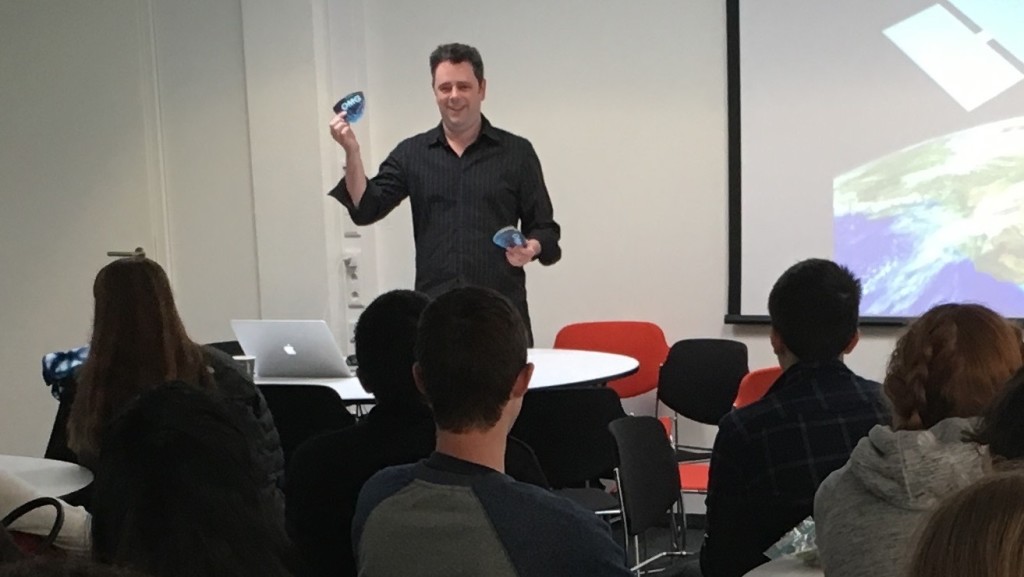
by Patrick Lynch / KEFLAVIK, ICELAND /
Here’s the second part of our Q&A with Oceans Melting Greenland (OMG) principal investigator Josh Willis, an oceanographer at NASA’s Jet Propulsion Laboratory in Pasadena, California, specializing in sea level rise. Josh is also a graduate of the improv program at Second City Hollywood Conservatory in Los Angeles. Here he describes how exercising his sense of humor improves his science.
In high school, I actually enjoyed physics and calculus, which was weird. So in college, that’s what I wound up doing. But just so I didn’t lose my humanity entirely I minored in theater, which is probably one of the best decisions I made in college. Since I’ve been in Los Angeles, I’ve taken improv classes at Second City Hollywood and continue to perform regularly with a group.
I’ve realized that I love talking about science. One of the most important things you learn in grad school is how to talk to other scientists, but it has a side effect of making you forget how to talk to everyone else. I spent 10 years learning how to talk to scientists and now I’ve had to spend 10 years unlearning that.
I think what I’ve learned from those classes and performing is important, and not just in explaining the science to people. There’s a certain amount of creativity that’s required to do innovative science. There are a lot of really big questions in climate science – like, how much will sea level rise? A certain amount of creativity is needed especially when you’re trying to propose a big project.
With OMG, we really set up a classic experiment. We are testing a hypothesis. We’re measuring the ocean, and we’re measuring the response of the glaciers. What we really want to be able to say is that we’ve measured X amount of warming and Y amount of ice melt, and we want to capture that all around the island for a period of five years. We have several different observational campaigns to try and crack this problem. And I think reawakening the creative part of my brain definitely helped cook that up.
Oceans Melting Greenland will pave the way for improved estimates of sea level rise by investigating the extent to which the oceans are melting Greenland’s ice. OMG will observe changing water temperatures and glaciers that reach the ocean around all of Greenland from 2015 to 2020.
